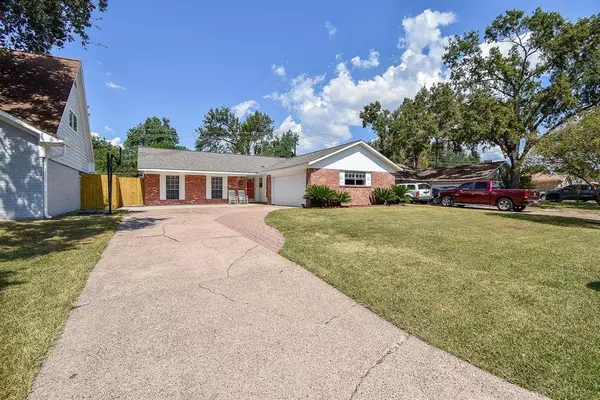
4 Costs Homebuyers Often Forget About
Today, I’d like to go over four costs you may have forgotten about when making your home buying budget. Looking to buy in the Greater Houston Area? Get a full MLS accessLooking to Sell in the Greater Houston Area? Get a free home market analysis It isn’t cheap to buy a home these days, and I’m not just talking about the price of the home itself. Unexpected out-of-pocket costs can pop up during the process. It isn’t cheap to buy a home. Today, I’d like to go over four costs you may have forgotten about when making your home buying budget. 1. The inspection. After you’ve made an offer on a property, you’ll usually need to pay an inspector to take a look at the home. This can run you a few hundred dollars. But, if there are any structural or safety issues, you may have to pay another professional to look specifically at the problem area. 2. Extra costs at the closing table. Beyond the closing costs themselves, there are a few additional expenses that buyers sometimes forget about at the closing table. Many lenders require you to pay a year’s taxes and mortgage up front. If the seller prepaid any of the taxes or fees, you’ll pay a prorated amount for the next of the year. 3. The move. Unless you’ve got some family members who can take care of most of this work for you, moving can be an expensive process. Costs will vary greatly depending on how much you’re moving, how far away you’re moving, where you live, and more. In any case, expect to pay a few thousand dollars. 4. Immediate costs. You may be able to put off new furniture purchases and renovations, but there are a few different expenses to expect right away. For example, you’ll need to hire a locksmith to change the locks in your new home. There could also be deposits or fees associated with setting up or transferring your utilities. Also, remember to plan for both routine and unexpected maintenance costs. Most real estate professionals will tell you that something in your new home is going to break down within the first year. So, set up an emergency savings account with at least six months’ worth of living expenses. If you have any other questions or would like more information, feel free to give me a call or send me an email. I look forward to hearing from you soon. Contact Us Written by Ruby Miranda on September 23, 2018. Posted in Buy A Home, Buyer Tips, Financing A Home, First Time Home Buyers, Home Loan ProcessTags: Buy Your Home, Buyer Tips, Financing A Home, First Time Buyer Trackback from your site. Leave a Reply.

How Your Mortgage Can Be a Surefire Investment
Paying down your mortgage is a great investment. Find out how to do it fast right here. Looking to buy in the Greater Houston Area? Get a full MLS accessLooking to Sell in the Greater Houston Area? Get a free home market analysis Today, we’re going to talk about how your mortgage can be a surefire investment. Paying down a mortgage has long been viewed as a reliable investment. It reduces debt, helps home equity grow faster, and provides a guaranteed return equal to the mortgage rate—usually more than someone can make in bank savings, bonds, or other comparable investments. One of the things I recommend to buyers when it comes to making additional payments is to make one to two extra payments of what their principal and interest on their home is. For example, if your total payment with principal, interest, taxes, and insurance is $1,300, where $600 of that is just the taxes and insurance and $700 is the actual principal and interest portion, then you will make one additional payment of that every year for the life of the loan consistently. You’ll reduce the amount of time you pay by five or six years. By making two additional payments every year for the life of the loan, you can reduce your mortgage by 10 to 12 years. The key is to do it every year without fail. The key is to do it every year without fail. Any more than that doesn’t make as much of a difference, unless you’re dropping huge chunks of money. Remember, you can break it up throughout the year on a monthly basis. Using the earlier example of the two extra payments of $700, if you broke up that $1,400 up on a monthly basis, the dollar amount per month would be $116, which would mean a world of savings over the lifetime of the loan. As they say, a penny saved is a penny earned. Should you have any additional questions about buying or selling real estate in today’s market, feel free to contact me. I’m always happy to help. Contact Us Written by Ruby Miranda on September 23, 2018. Posted in Buy A Home, Buyer Tips, Financing A Home, First Time Home Buyers, Home Loan ProcessTags: Buy Your Home, Buyer Tips, Financing A Home, First Time Buyer Trackback from your site. Leave a Reply

A Few More Buyer and Seller Questions Answered
I have five more common buyer and seller questions I want to answer with detailed explanations. Looking to buy in the Greater Houston Area? Get a full MLS accessLooking to Sell in the Greater Houston Area? Get a free home market analysis Here are a few more common questions I get from buyers and sellers ad my answers to them. I accepted an offer, but now I’m wondering if I could have sold for more. Can I keep looking at other offers? Sellers never know how long a particular buyer has been on the market. It could be that they’ve been looking for a while, and it’s because you’re just now coming on the market that you’re getting an offer pretty quickly. A lot of times when sellers get an offer quickly, they wonder if they priced their home too low. That’s not necessarily true. Sometimes it just means you priced your home exactly where it needed to be for that right buyer at that right moment. Once you accept an offer, you can continue to show your home, place it under “Pending, continue to show” status, and accept other offers. However, even if you get a cash offer, you can’t move forward with it unless the previous buyer cancels their contract or defaults in some way. While it’s a good idea to continue showings in case you have backup offers, any backup offer depends on the whether or not the current offer you have closes. The seller didn’t disclose something about the property? Are they on the hook? It depends on what they didn’t disclose. Was it a defect that you can prove they knew existed prior to filling out the disclosure, something they didn’t know existed, or something that was apparent throughout the transaction and never caught? They’re only on the hook if they knew about something and didn’t disclose it. The answers to some of these questions vary on a case-by-case basis. This is the kind of question that varies on a case-by-case basis. Any issue would be addressed between each party and their agents. The buyer’s financing fell through before the close date. Can I walk away? If they can’t obtain financing in some other way, yes you can walk away. If their financing didn’t come through, it becomes a question of whether they’re taking action to come up with cash funds or get their financing in order to proceed with the closing. If neither is the case and they can’t move forward, the contract will be terminated. The inspection raised some issues I wasn’t expecting and the house appraisal doesn’t match the contract price. Can I back out of the deal? When it comes to the inspection, unless you’re purchasing a new construction home, you’ll probably find defects with the house. Some of these defects will be normal wear and tear, and others will be more high-dollar items, and those are the things you need to watch out for. When you do an inspection, you have to decide whether you want to negotiate with the seller to get them to fix certain things before closing, give you a credit to fix them after closing, fix those things yourself, or back out of the transaction. Again, the answer will vary on a case-by-case basis and depend on what your inspection entails. If you decide you don’t want to move forward, you’ll enter an option period where you can cancel the contract. What happens if the house isn’t appraised for what I’m willing to pay for it? There are a few different paths the transaction can go. The seller can lower the price, the buyer can make up the difference between the sale price and the appraised price, they can meet in the middle, or the buyer can walk away without penalty. If the house doesn’t appraise at the sale price, the seller’s agent will typically confer with them and decide on the best course of action. At that point, the buyer also has to ask themselves how much they really like the property. If you have any additional questions about buying or selling real estate, don’t hesitate to reach out to me. I’d love to speak with you. Contact Us Written by Ruby Miranda on September 23, 2018. Posted in Buy A Home, Buyer Tips, Financing A Home, First Time Home Buyers, First Time Home Sellers, Home Loan Process, Sell Your Home, Seller TipsTags: Buy Your Home, Buyer Tips, Financing A Home, First Time Buyer, First Time Seller Trackback from your site. Leave a Reply
Categories
- All Blogs (66)
- Buy A Home (23)
- Buyer Tips (31)
- Deer Park Spotlight (1)
- Downloads (4)
- Downpayment Assistance / Grant Programs (4)
- Financing A Home (11)
- First Time Home Buyers (13)
- First Time Home Sellers (11)
- Follow Me Friday (5)
- For Sale By Owner / FSBO (7)
- Fun Stuff :) (6)
- Holiday Events (2)
- Home Appraisals (7)
- Home Inspections (6)
- Home Loan Process (10)
- Home Maintenance (7)
- Home Staging (4)
- Homestead Exemption (4)
- Investing (6)
- Listing Video Tours (7)
- Market Snapshot (7)
- Market Update (7)
- Miscellaneous (5)
- New Construction (5)
- New Listings (1)
- Raving Fans (5)
- Real Estate Knowledge Video Series (6)
- Sell Your Home (31)
- Seller Tips (28)
- Tax Credits (4)
- Testimonials / Reviews (5)
- Uncategorized (10)
- VIP Preferred Vendors (5)
Recent Posts










